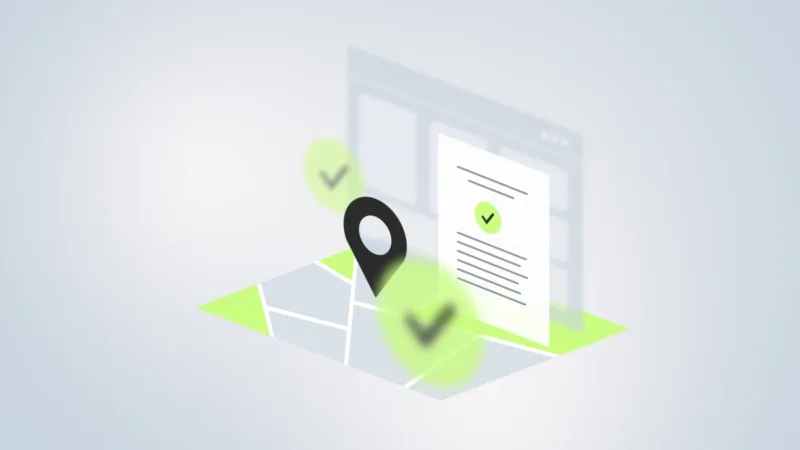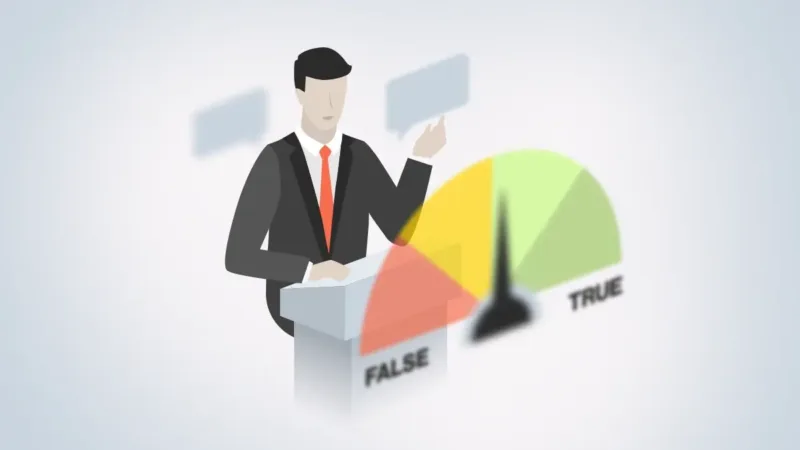What is PIPEDA: Personal Information Protection and Electronic Documents Act?

The Personal Information Protection and Electronic Documents Act (PIPEDA) is Canada’s main federal privacy law that regulates how organizations collect, use, and disclose personal information in the course of commercial activities. It applies to private-sector organizations, charities and non-profits engaged in commercial activities, as well as federally regulated works, undertakings, and businesses (FWUBs). Although several provinces have their own privacy laws, PIPEDA continues to apply to cross-provincial and international data flows. Understanding PIPEDA is essential not only for legal compliance but also for building customer trust and maintaining international data transfer rights, including Canada’s adequacy status under the EU’s GDPR.
What is PIPEDA?
The Personal Information Protection and Electronic Documents Act (PIPEDA) is Canada’s federal privacy law for the private sector. It sets rules for how organizations collect, use, and disclose personal information in the course of commercial activities. At its core, PIPEDA is about ensuring that individuals’ privacy rights are respected while still allowing businesses to operate effectively in a data-driven economy. Organizations must handle data through fair and lawful means and protect it with appropriate security measures that reflect the sensitivity of the information.
Who PIPEDA Applies To
PIPEDA applies broadly to:
Private-sector organizations across Canada that engage in commercial activities, from e-commerce companies and retailers to tech start-ups and professional services.
Federally regulated works, undertakings, and businesses (FWUBs) such as banks, airlines, railways, and telecommunications providers. These industries fall directly under federal jurisdiction, making PIPEDA their primary privacy law. Within these businesses, employee personal information collected for employment purposes is also covered.
Charities and non-profits when they engage in commercial activities, such as selling merchandise, running membership programs, or offering paid services. Even if their mission is not profit-driven, their data-handling practices may still trigger PIPEDA.
Certain exclusions exist. For example, PIPEDA does not apply to data collected for personal or domestic purposes, such as a home address book or family photo album. Information collected, used, or disclosed by federal government organizations is also regulated instead under the Privacy Act, not PIPEDA.
Provincial Exceptions
PIPEDA does not always operate alone. Some provinces have introduced their own substantially similar privacy laws that replace PIPEDA within their borders for most local activities:
Quebec – Law 25 (previously Bill 64) modernizes privacy protections with GDPR-inspired provisions such as explicit consent rules and stronger transparency obligations.
Alberta – Personal Information Protection Act (PIPA) applies to organizations operating in Alberta.
British Columbia – Personal Information Protection Act (PIPA) governs organizations in BC.
Ontario – Personal Health Information Protection Act (PHIPA), also known as the Personal Health Information Act, applies specifically to healthcare providers and custodians.
Despite these provincial frameworks, PIPEDA still applies in important scenarios. It governs cases where personal data crosses provincial or national borders, such as when a BC company sends data to a service provider in Ontario or Europe. It also applies whenever federally regulated businesses handle personal data, regardless of province.
Why PIPEDA Matters
Compliance with PIPEDA is not just a legal requirement — it is a business necessity. Organizations that follow the law:
- Protect privacy rights by applying strong security safeguards to prevent misuse, identity theft, and reputational harm.
- Avoid legal and financial risks, since non-compliance can lead to investigations, fines of up to $100,000 per violation, and lawsuits in Federal Court.
- Maintain consumer trust by showing transparency and accountability in data handling practices.
- Enable global data-sharing, since Canada’s continued adequacy status under the EU’s GDPR depends on PIPEDA. Without this alignment, many cross-border data flows — essential for trade, SaaS operations, and global services — would face major barriers.
In short, PIPEDA establishes the ground rules for responsible data handling, ensuring Canadian organizations can compete globally while upholding strong privacy protections at home.
Fair Information Principles
PIPEDA’s framework is built on ten principles:
| Accountability | Organizations must designate individuals responsible for PIPEDA compliance. |
| Identifying purposes | Clearly define the purposes for data collection. |
| Consent | Obtain informed consent for data collection, use, and disclosure for any individual’s personal information. |
| Limiting collection | Collect only necessary information. |
| Limiting use, disclosure, and retention | Use data only for identified purposes and retain it only as long as necessary. |
| Accuracy | Ensure data accuracy and completeness. |
| Security safeguards | Protect data against unauthorized access and other risks with appropriate security measures. |
| Openness | Be transparent about data management practices. |
| Individual access | Allow individuals to access and correct their data. |
| Challenging compliance | Provide mechanisms for individuals to challenge non-compliance. |
Other Canadian Privacy Laws
Canada also has provincial privacy laws like Alberta’s and British Columbia’s Personal Information Protection Act (PIPA), Quebec’s Privacy Legislation Modernization Act and Newfoundland and Labrador’s Personal Health Information Act (PHIA). Additionally, federal laws like the Freedom of Information and Protection of Privacy Act (FIPPA) govern public bodies, and sector-specific regulations apply to industries like telecommunications, finance, and healthcare.
PIPEDA Requirements

The Personal Information Protection and Electronic Documents Act (PIPEDA) establishes various requirements for organizations when collecting, using, and disclosing personal information. These include:
- Obtaining Consent: Organizations must secure meaningful consent from individuals before collecting, using, or disclosing their personal information used during identity verification. Individuals must be informed about the purpose of the data collection, use, or disclosure.
- Limiting Use, Collection, and Disclosure: Organizations must restrict the collection, use, and disclosure of personal information to what is necessary for the identified purposes. Any new purpose for using the information requires additional consent as well as fair and lawful means to collect it.
- Ensuring Accuracy: Organizations must take reasonable steps to ensure that personal information is accurate, complete, and up-to-date.
- Retention: Personal information should only be kept for as long as necessary to fulfill the identified purposes.
- Safeguarding Personal Information: Organizations must implement appropriate security measures, including physical, organizational, and technological safeguards, to protect personal information from unauthorized access.
- Providing Access: Upon request, organizations must inform individuals about the existence, use, and disclosure of their personal information and provide them with access to it.
- Allowing Individuals to Challenge: Individuals have the right to challenge the accuracy and completeness of their personal information and request amendments if necessary.
- Sensitivity of the Information: Organizations must provide additional protection for sensitive information, such as personal health information.
- Responding to Inquiries and Complaints: Organizations must respond to inquiries and complaints about their privacy practices in a timely and appropriate manner.
Failure to comply with these requirements can lead to penalties, damage to an organization’s reputation, and loss of consumer trust. In severe cases, individuals may take legal action against organizations, and federal courts can order remedies for significant harm caused by unauthorized access to personal information.
Exceptions to PIPEDA Requirements
PIPEDA recognizes that in some cases, consent is not practical or necessary. Key exceptions include:
Law enforcement – Organizations may disclose information without consent if required by subpoena, warrant, or other lawful authority.
Publicly available information – Certain categories, such as publicly listed directories, published news, or public registries, may be used without consent (subject to regulations).
Business contact information – Basic work-related information (e.g., name, job title, work phone, and email) can be collected and used for business communications without consent.
Employee data in FWUBs – Federally regulated works, undertakings, and businesses (like banks, airlines, and telecom providers) may collect and use employee information for employment-related purposes.
Children under 13 – Parental consent is required before collecting personal information from children, based on OPC guidance.
PIPEDA Enforcement and Penalties
Enforcement of PIPEDA is handled by the Office of the Privacy Commissioner of Canada (OPC), an independent federal body responsible for ensuring compliance with the law and protecting individuals’ privacy rights. While the OPC does not have the same direct fining powers as some international regulators (such as EU data protection authorities under the GDPR), it plays a central role in investigating complaints and holding organizations accountable.
OPC Powers
The OPC has the authority to:
- Conduct investigations – These can be initiated by an individual complaint or launched independently by the Commissioner if there are reasonable grounds to believe an organization is violating PIPEDA.
- Issue reports of findings – After an investigation, the OPC issues findings that include recommendations for how the organization should remedy any non-compliance.
- Make compliance recommendations – While not legally binding, these recommendations carry significant weight. Organizations that ignore them risk reputational damage and possible escalation to Federal Court.
- Refer matters to the Attorney General – If an organization commits an offence under PIPEDA, the Commissioner can refer the case to the Attorney General of Canada for potential prosecution.
Federal Court Enforcement
Although the OPC itself cannot levy administrative monetary penalties, it can bring cases before the Federal Court of Canada, or individuals may do so themselves. The court has the authority to:
- Order organizations to change their practices.
- Award damages to individuals for harm suffered as a result of a privacy violation.
This means that enforcement often follows a path of investigation, recommendation, and if necessary, judicial resolution.
Penalties Under PIPEDA
PIPEDA includes specific offences that can result in fines of up to $100,000 CAD per violation. These offences include:
- Failure to report a data breach – Organizations that experience a breach creating a “real risk of significant harm” must report it to the OPC and notify affected individuals.
- Failure to maintain breach records – Organizations are required to keep records of all data breaches for at least two years.
- Obstructing an OPC investigation – For example, by destroying relevant documents, providing false information, or refusing to cooperate.
It is important to note that these fines are not applied automatically but require prosecution, usually after a referral by the OPC to the Attorney General.
The Practical Reality of Enforcement
In practice, most PIPEDA enforcement is compliance-driven rather than punitive. The OPC typically seeks to resolve issues through:
- Guidance and education.
- Recommendations in investigation reports.
- Encouraging organizations to adopt corrective measures voluntarily.
However, for organizations that fail to cooperate or that commit serious breaches, enforcement can escalate to formal penalties and court orders.
Last Thoughts
PIPEDA compliance is about more than avoiding penalties — it’s about building trust with customers, supporting safe international business, and preparing for future privacy developments. Although Canada’s attempt to modernize its framework with Bill C-27 (CPPA) ended in early 2025, leaving PIPEDA in place, the law remains central to privacy protection in Canada.
Canada’s EU adequacy status was reaffirmed in 2024, ensuring seamless data flows between Canada and the EU. Meanwhile, the Office of the Privacy Commissioner (OPC) continues to strengthen compliance practices, most recently releasing a self-assessment tool in 2025 to help organizations determine whether a breach meets the “real risk of significant harm” threshold.
Together, these developments highlight the need for organizations to treat privacy as a cornerstone of business strategy, not just a compliance exercise.







